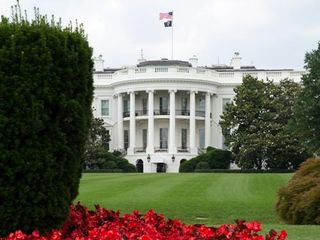Trump Draft Order Enlists FCC in Social Media Regulation

President Donald Trump is preparing an executive order that could try to get the FCC to regulate online speech and ban federal spending on ad campaigns with social media platforms that violate free speech principles as the Trump Administration defines them.
That is according to a leaked draft being widely circulated and reported.
Related: Trump Threatens to Shut Down Social Media
The order would direct the President's chief communications policy arm, the National Telecommunications & Information Administration, to ask the FCC to conduct a rulemaking to "clarify" under what conditions restricting access to content can be considered a violation of an online platform's terms of service. Currently the FCC does not regulate social media sites, or ISPs beyond their terms of service.
While social media have a legal liability protection--via Sec. 230 of the Communications Decency Action--the draft says that does not apply to deceptive actions restricting online content or in violation of its terms of service.
The President had signaled some action was coming on social media Wednesday (May 28), citing among other things Twitter's flagging and tagging of his tweets that mail-in ballots were bogus and an effort to rig the upcoming election, as well as Google's admission that is had been deleting Chinese-language phrases critical of the Chinese Communist Party (Google said it was a mistake being corrected).
According to the draft, the order says that online platforms can't be allowed to be the arbiters of the speech Americans can access, which the draft calls fundamentally un-American and anti-democratic and a dangerous power in the hands of social media.
Multichannel Newsletter
The smarter way to stay on top of the multichannel video marketplace. Sign up below.
Related: NetChoice Says Trump Is Trampling First Amendment
Among the troubling practices it cites are flagging content as inappropriate even though it does not violate terms of service, as well as making unannounced policy changes that disfavor particular viewpoints and deleting content/accounts without warning, explanation or redress.
Those are the main complaints conservatives have leveled against social media platforms they say are censoring conservative speech.
"I hope that the FCC will stand firmly for free speech - especially for speech the White House does not like!," said Preston Padden a former top broadcast executive,--including ABC Network president, of the attack on a new target.
As Padden has detailed, back in the 1960's, the Nixon White House went after the broadcast networks, saying the left wing cartel over information to the American people had to be broken up.
Asked Wednesday at a press briefing by CNN's Jim Acosta whether she didn't think that the President needed to be fact checked, particularly given his many false statements, White House press secretary Kayleigh NcEnany challenged that assertion and said there is no one that should be fact checked more than the mainstream media. She also said the President's "intent is always to give truthful information to the American people."
McEnany said that she expected the executive order should be signed by the end of the day.
The White House would have to go the route of directing NTIA to propose the move to the FCC, since as an independent agency it is not subject to executive orders.
But independent agencies, headed by chairs of the same party as the President, can and have honored the spirit of such directives, as the FCC did back in 2011, when President Barack Obama issued an executive order that government agencies had to conduct cost/benefit analysis of regulations.
In that case, Obama issued two executive orders, one saying government agencies needed to submit regulatory review plans to the White House, a second to clarify that although independent agencies like the FCC and FTC were not subject to that order, they were encouraged to do so, at least to the extent of "publishing" a plan of action for reviewing their regs according to a qualitative and quantitative cost-benefit analysis of their impact on jobs and the economy.
"The draft's directives to the FCC are preposterous, but at the same time, horrifying," said Andrew J. Schwartzman, senior counselor, Benton Institute for Broadband & Society, of the social media executive order draft. "The FCC has no authority to enforce Section 230, so any interpretation it might issue will have no legal effect. In any event, what it calls on the FCC to to rewrite the law, which is a power that belongs to Congress. Even so, the idea that President Trump wants to violate the First Amendment by regulating and punishing social media platforms for their editorial judgments is one more ominous sign that the rule of law is under attack."
ACLU senior legislative counsel Kate Ruane cautions that this could wind up being a trial balloon that bursts.
Related: Trump Looks to Enforce Fairness on Social Media
"[W]e've been down this path before," she said. "Last year, an EO also targeting social media companies was floated and reported on for a few days, the FCC and FTC reportedly pushed back, and then it was never issued.
"Much as he might wish otherwise, Donald Trump is not the president of Twitter. This order, if issued, would be a blatant and unconstitutional threat to punish social media companies that displease the president," said Ruane.
"The president also has no authority to rewrite a congressional statute with an executive order imposing a flawed interpretation of Section 230. Section 230 incentivizes platforms to host all sorts of content without fear of being held liable for it. It enables speech, not censorship."
Contributing editor John Eggerton has been an editor and/or writer on media regulation, legislation and policy for over four decades, including covering the FCC, FTC, Congress, the major media trade associations, and the federal courts. In addition to Multichannel News and Broadcasting + Cable, his work has appeared in Radio World, TV Technology, TV Fax, This Week in Consumer Electronics, Variety and the Encyclopedia Britannica.

